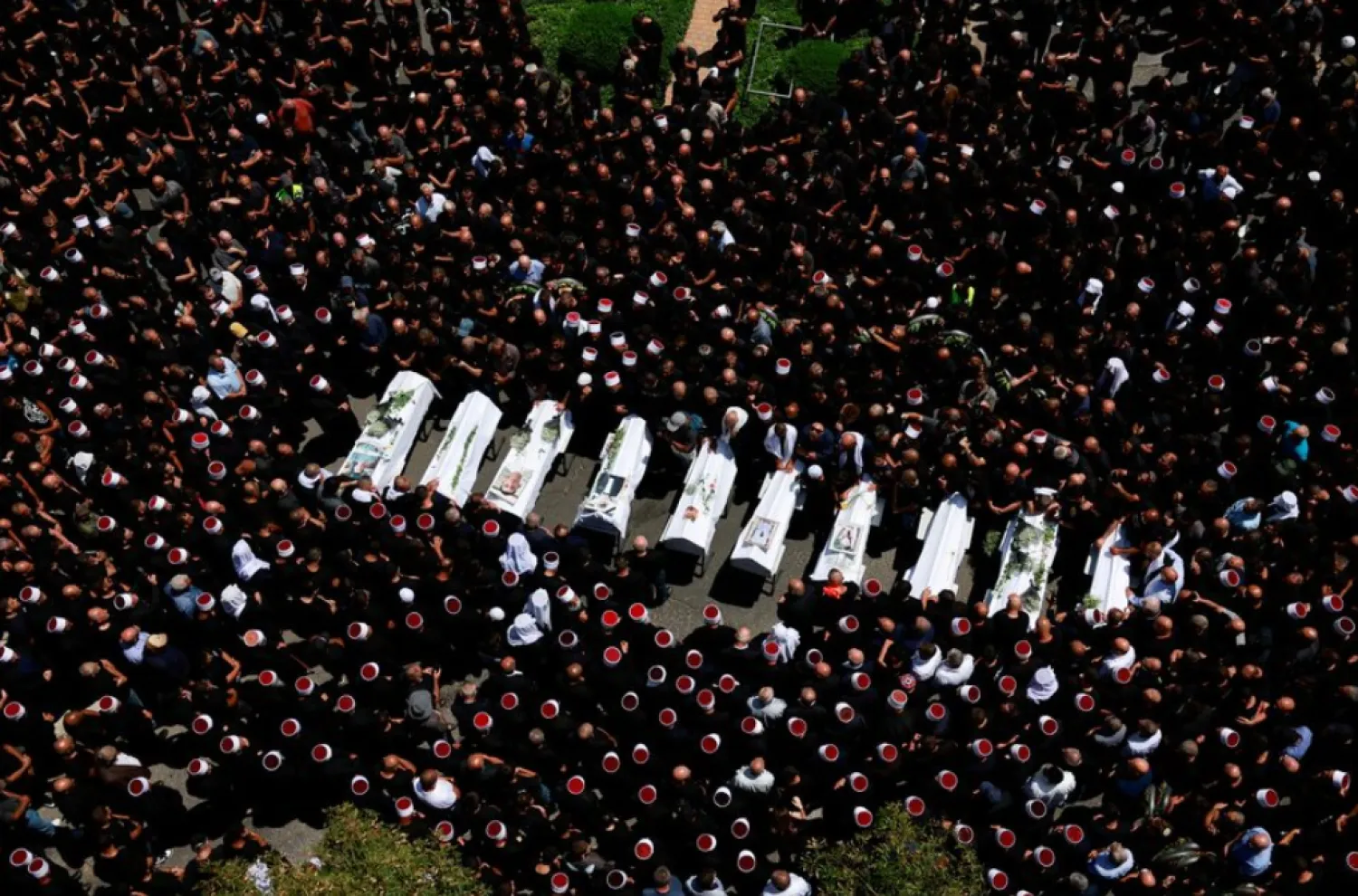Israel's security cabinet on Sunday authorized Prime Minister Benjamin Netanyahu's government to decide on the "manner and timing" of a response to a rocket strike in the Israeli-occupied Golan Heights that killed 12 teenagers and children, and which Israel and the United States blamed on Lebanese armed group Hezbollah.
Hezbollah denied responsibility for the attack on Majdal Shams on Saturday, the deadliest in Israel or Israeli-annexed territory since Palestinian militant group Hamas' Oct. 7 assault sparked the war in Gaza. That conflict has spread to several fronts and risks spilling into a wider regional conflict.
Israel has vowed retaliation against Hezbollah in Lebanon, and Israeli jets hit targets in southern Lebanon during the day on Sunday.
But there were expectations a stronger response could follow the security cabinet meeting convened by Netanyahu in Tel Aviv.
After the meeting ended, Netanyahu's office said the cabinet "authorized the Prime Minister and the Defense Minister to decide on the manner and timing of the response."
The White House on Sunday also blamed Hezbollah for the Majdal Shams strike. "This attack was conducted by Lebanese Hezbollah. It was their rocket, and launched from an area they control," it said in a statement.
US Vice President Kamala Harris, the Democratic presidential candidate, said through her national security adviser that her "support for Israel’s security is ironclad,"
The US said Washington has been in discussions with Israeli and Lebanese counterparts since Saturday's "horrific" attack and that it was working on a diplomatic solution.
US Secretary of State Antony Blinken said Washington did not want further escalation of the conflict, which has seen daily exchanges of fire between the Israeli military and Hezbollah along the border.
Britain expressed concern at further escalation while Egypt said the attack could spill "into a comprehensive regional war."
On the ground, thousands of people gathered for funerals in the Druze village of Majdal Shams in the Golan Heights, territory captured from Syria by Israel in the 1967 Middle East war and annexed in a move not recognised by most countries.
"A heavy tragedy, a dark day has come to Majdal Shams," said Dolan Abu Saleh, head of the Majdal Shams local council, in comments broadcast on Israeli television.
Hezbollah initially announced it fired rockets at Israeli military sites in the Golan Heights, but said it had "absolutely nothing" to do with the attack on Majdal Shams.
However, Israel said the rocket was an Iranian-made missile fired from an area north of the village of Chebaa in southern Lebanon, placing the blame squarely on Iranian-backed Hezbollah.
It was not immediately clear if the children and teenagers killed were Israeli citizens.
"The rocket that murdered our boys and girls was an Iranian rocket and Hezbollah is the only terror organization which has those in its arsenal," Israel's foreign ministry said.
Two security sources told Reuters that Hezbollah was on high alert and had cleared some key sites in both Lebanon's south and the eastern Bekaa Valley in case of an Israeli attack.
Lebanon's Middle East Airlines said it was delaying the arrival of some flights from Sunday night to Monday morning, without stating why.
Israeli forces have been exchanging fire for months with Hezbollah fighters in southern Lebanon, but both sides have appeared to be avoiding an escalation that could lead to all-out war, potentially dragging in other powers including the United States and Iran.
However, Saturday's strike threatened to tip the standoff into a more dangerous phase. United Nations officials urged maximum restraint from both sides, warning that escalation could "engulf the entire region in a catastrophe beyond belief."









